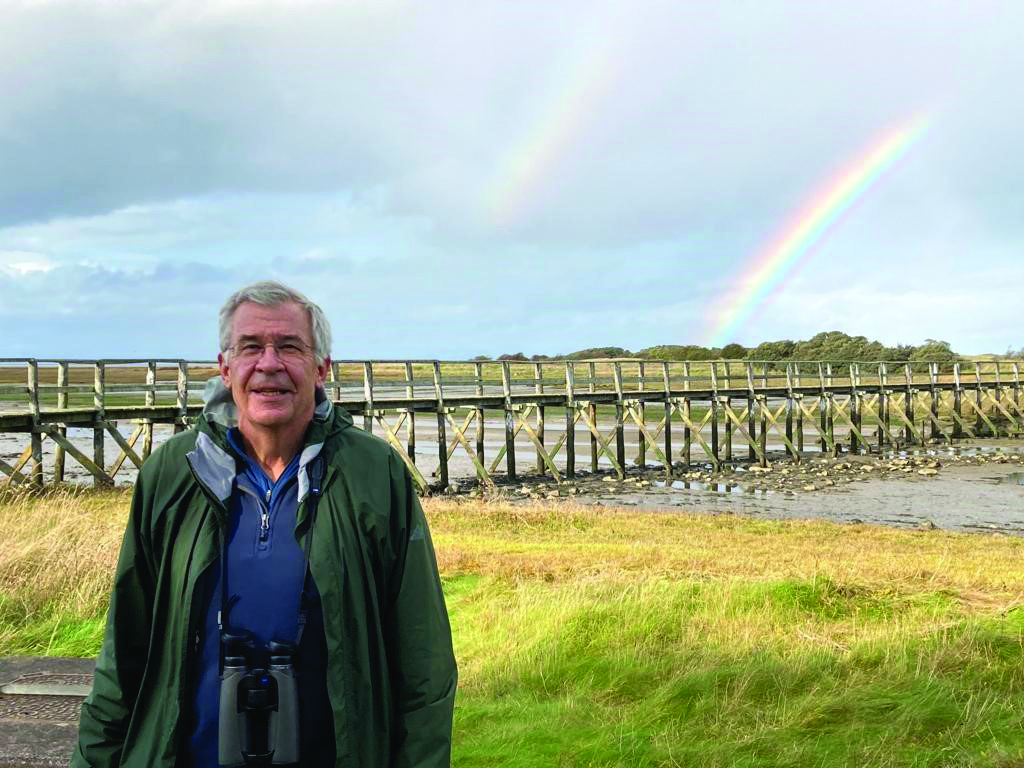 DEGREE: B.A. in history; graduate work in history and economic history, University of Edinburgh, Scotland
DEGREE: B.A. in history; graduate work in history and economic history, University of Edinburgh, Scotland
JOB TITLE: President and CEO Northland Forest Products, Inc., based in Kingston, New Hampshire, and Troy, Virginia
FAVORITE TRINITY MEMORY: My happiest TC memory is that I have been blessed to maintain a fairly wide circle of friends from our class, both men and women in all parts of the country (and world). Those close friendships have enriched my life.
You’re a fourth-generation lumberman. What does this field of work mean to you, and what do you do in your role? Yes, my family has been in the hardwood lumber industry since the late 1800s. It has been a challenge to survive in a natural-resource-based industry that is still in many ways a very old-fashioned one. We have had to innovate to keep operating profitability. Luckily, we have a product that has seen increasing demand around the world because it is from a sustainable and renewable low-risk temperate forest at a time when tropical forest destruction has reduced demand for those products. We have tried to be a leader in certified wood. I was an early chair of the Forest Stewardship Council (FSC) U.S. Board of Directors and also a pioneer in heat-treated hardwoods (like tulip poplar) that can be used externally as an alternative to western red cedar. I have been president of the company for 35 years and have handled a large proportion of the export sales until quite recently.
What are the biggest challenges you face? Our biggest challenges at the moment are getting a new generation interested in an old-fashioned industry and figuring out ways to transport our products domestically and overseas. We have been severely impacted by the shortages of trucks and the chaos of the ocean-freight industry. We also face a generation of people who are used to IKEA products (not made from solid wood) and alien to the idea that a solid perhaps expensive piece of furniture or cabinets or flooring might not only be a good investment but also a storer of carbon. Sustainable low-risk American wood—perhaps harvested under a voluntary certification program—can be a low-carbon-footprint alternative.
What do you enjoy most about what you do? I love being able to sell a beautiful, nature-made product and see the end results in artisan-produced furniture and cabinets. Being a family-business owner, I also have had the ability to be fairly flexible with my schedule and therefore had the time to be very involved in my industry associations and the nonprofit sector both locally and nationally. Although my focus always has been land conservation and environmental NGOs (I just finished my term as chair of the Land Trust Alliance and currently chair the American Forest Foundation), I also have served a number of arts and historical groups in New Hampshire, including Strawbery Banke Museum, The Music Hall and the Prescott Park Arts Festival, and our New Hampshire Charitable Foundation and regional Foundation for Seacoast Health. My environmental activism started before Trinity, when I co-chaired the first Earth Day in 1970 in my hometown. At Trinity, I was a co-chair of Connecticut Zero-Population Growth (ZPG), which at the time was focused on creating dialogue about the impact of the human population on the ecosystem and yes, even then, on our fossil-fuel addiction and the impact of its waste, including carbon on the planet.
How did your time at Trinity prepare you for the work you do? Trinity in the 1970s was way more open to study-abroad options than many of the other Little Ivies. With the support of the history faculty, I was able to attend the University of Edinburgh junior year (as a directly enrolled student) and get full department credit for the outstanding courses I took in British colonial history and economics. That opportunity allowed me to return to Scotland for graduate school and then to work in Liverpool, England, in the timber trade. When I returned to the family business in late 1978, I had learned a global perspective, had developed some customers in Europe that we still have today, and had established a lifelong love for the United Kingdom. The U.K. remains our largest marketplace.
What was the most memorable course you took at Trinity? Of course, everyone loved George Cooper’s English history classes and Dr. Weaver’s course on colonial America, but I was most impacted by Dr. Steele’s course in African history and the impact of European imperialism. Dr. Steele was very supportive of my Edinburgh adventure and encouraged my senior thesis work in the economics behind utopian settlements in New Zealand and Southern Australia.
